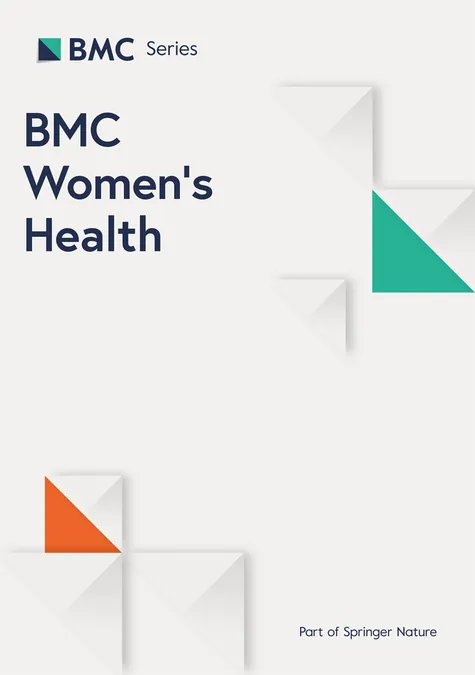
Unlocking the Secrets to Menopause: How Irish Women Conquer Physical Activity Challenges!
2024-12-27
Author: Daniel
Understanding the Participant Landscape
The study featured a diverse group of 12 Irish women, each bringing unique experiences to the table. Among them, a balanced representation of body mass index (BMI) was noted, with half considered ‘normal’ and the other half categorized as ‘overweight’. Impressively, participants engaged in physical activities an average of 4.6 days each week, including popular options like walking, yoga, and cycling. The majority were married and well-educated, illustrating a trend where education and health consciousness intersect.
Facing the Storm: Menopausal Transition Symptoms
Each participant self-reported experiencing a range of symptoms attributed to menopause, including weight gain, fatigue, and mood fluctuations. An alarming 9 out of 12 participants noted significant weight gain, a common struggle that many women face. Interestingly, the relationship between experiencing these symptoms and the desire for PA revealed a complex duality: while symptoms often deterred engagement, they also propelled women toward active solutions to mitigate their discomforts.
Motivators to Move: What Drives Engagement?
Four powerful motivators emerged from the research:
Managing Menopausal Symptoms
Many women cited PA as a key strategy to combat symptoms such as anxiety and fatigue. The immediate boost in mood and energy after exercise often encouraged them to push through challenges.
“I make myself walk even when I feel tired, because I know I’ll feel better,” expressed participant Lindsay.
Future Health Awareness
Although currently healthy, women expressed a desire to stay active to ward off age-related illnesses. Roisin emphasized, “This isn't just about getting through menopause; it's about longevity.”
Social Engagement
A newfound appreciation for socializing during PA emerged, highlighting the importance of relationships and community in motivating women to stay active. The joy of exercising with friends made physical activity not just beneficial but enjoyable.
Relatable Role Models
Participants voiced the need for examples of women in similar life stages succeeding in their fitness journeys. Sarah remarked, “It’s inspiring to see what others can achieve in midlife.”
Facilitators Making a Difference
Three main factors facilitated these women’s engagement in physical activity:
Community and Support
Establishing a sense of ‘fraternity’ allowed women to connect and share experiences. Many women sought out spaces with peers who were also navigating the menopause journey, finding strength in shared struggles.
Adaptation of Activities
Flexibility emerged as crucial, with women modifying activities to fit their current capabilities. This included choosing less intense forms of exercise or engaging in menopause-specific classes.
Medical Assistance
Access to medical support, including hormone replacement therapy (HRT), was a game-changer for some, alleviating debilitating symptoms that otherwise hindered PA participation.
Hurdles Along the Way: Barriers to Activity Engagement
Despite these motivating factors, numerous obstacles persisted:
Perceived Capability
Many women felt they were not as physically capable as before, causing reluctance to try new activities.
Symptoms’ Impact
Although symptoms served as motivators, they also presented a major barrier. Low energy and mood swings often thwarted desire for exercise.
Life's Competing Demands
Juggling jobs, family responsibilities, and personal health screenings took precedence over self-care, leaving women little time to carve out for PA.
Unwelcoming Environments
Many felt excluded from traditional PA environments like gyms, which they deemed intimidating and not tailored to their needs.
Conclusion: Rethinking Menopause & Physical Activity
This study offers rich insight into how menopause uniquely shapes the relationship between women and physical activity in Ireland. The findings underscore the necessity of community, relatability, and responsive environments to bolster women’s engagement in PA during this life stage.
To truly empower women, stakeholders must innovate and design programs that promote not only exercise but also community, flexibility, and understanding. The time is ripe for rethinking how we support women through this transition, ensuring they emerge from menopause not only surviving but thriving.
Are you a woman navigating menopause? Join a community, adapt your activities, and become your own role model! The journey may be tough, but together, we can break barriers!


 Brasil (PT)
Brasil (PT)
 Canada (EN)
Canada (EN)
 Chile (ES)
Chile (ES)
 España (ES)
España (ES)
 France (FR)
France (FR)
 Hong Kong (EN)
Hong Kong (EN)
 Italia (IT)
Italia (IT)
 日本 (JA)
日本 (JA)
 Magyarország (HU)
Magyarország (HU)
 Norge (NO)
Norge (NO)
 Polska (PL)
Polska (PL)
 Schweiz (DE)
Schweiz (DE)
 Singapore (EN)
Singapore (EN)
 Sverige (SV)
Sverige (SV)
 Suomi (FI)
Suomi (FI)
 Türkiye (TR)
Türkiye (TR)